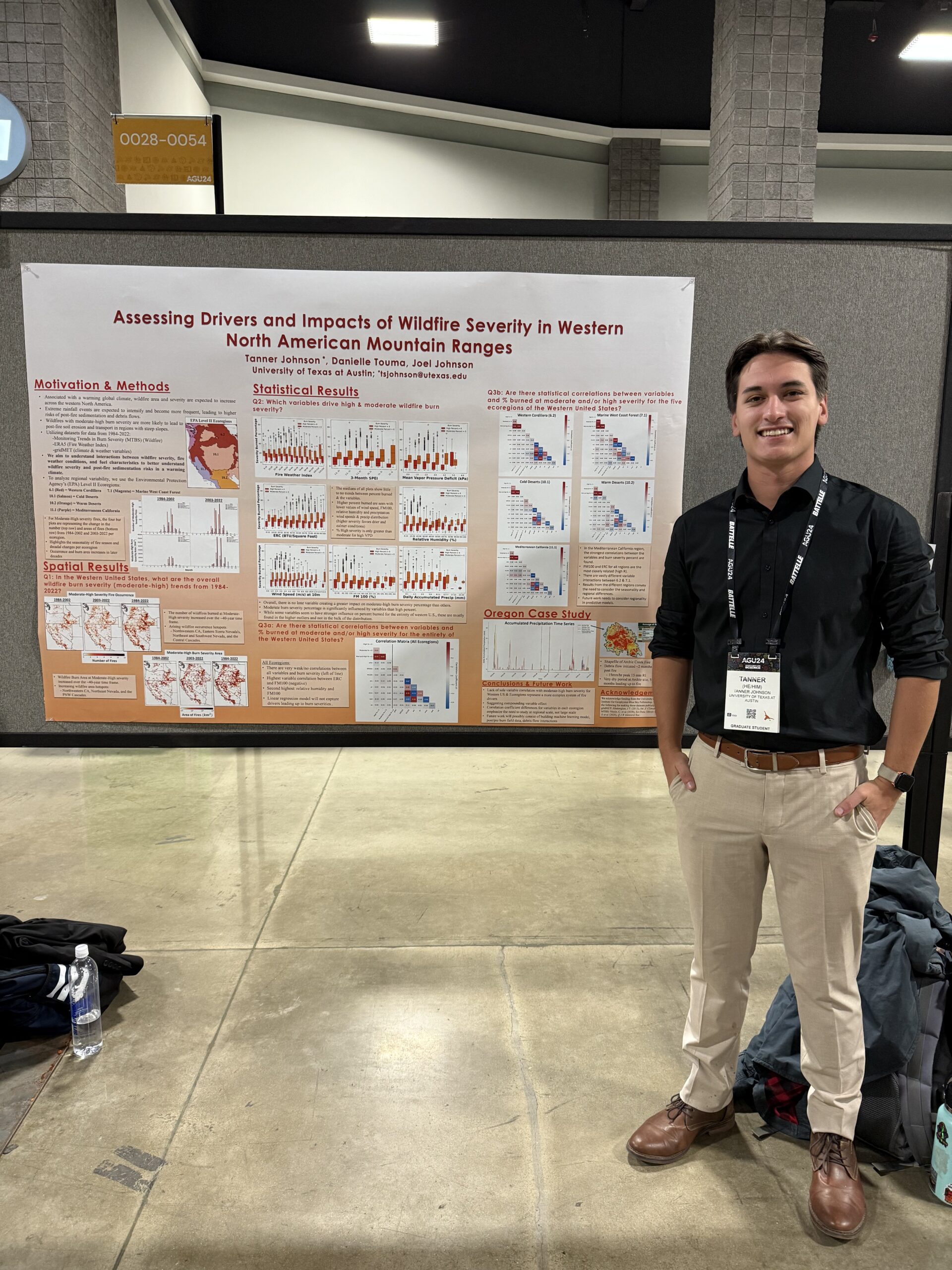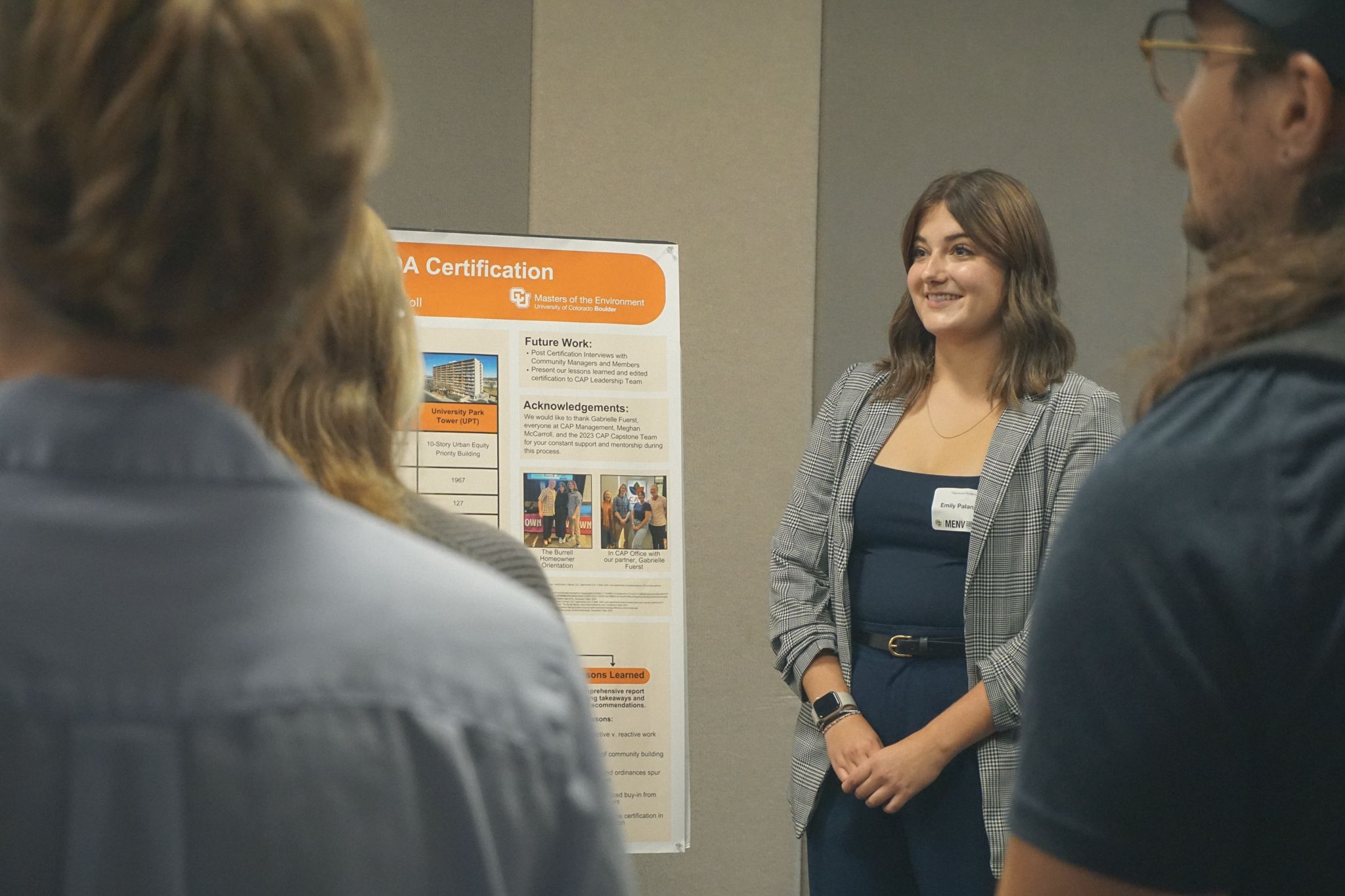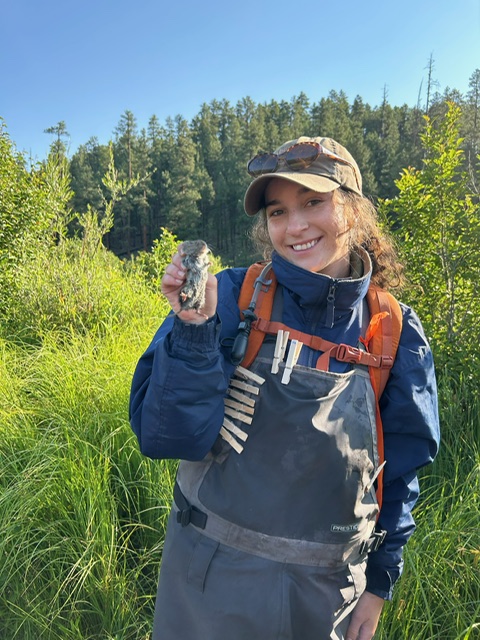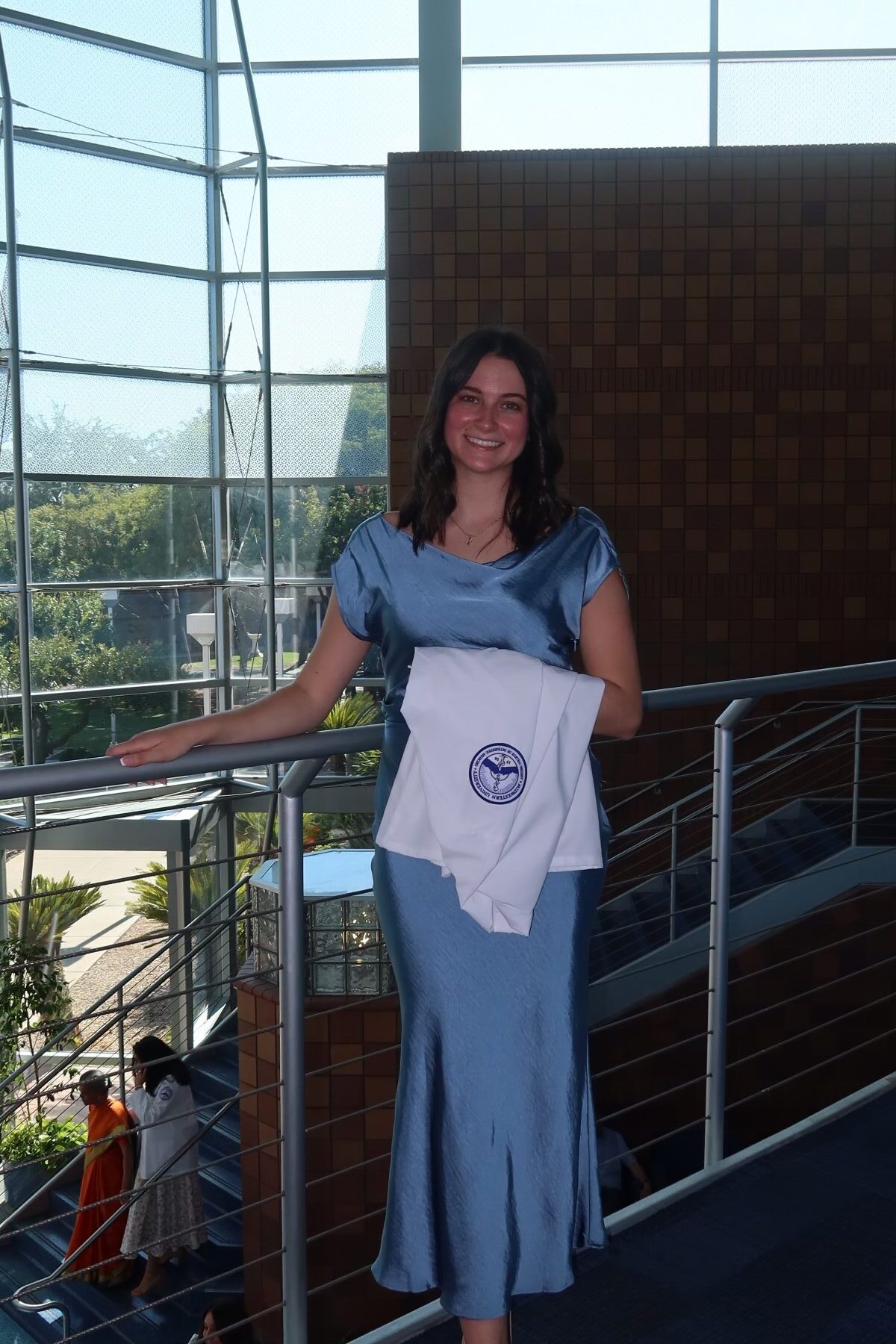
Tanner is currently pursuing a PhD program in Geosciences at UT-Austin. His research includes studying wildfires, flooding, and hazard mitigation! This past semester he began researching ways to predict wildfire burn severity based on climate conditions.
Q: What was your favorite memory from Eta?
A: “I genuinely could not choose just one. Notable ones include the first ever Eta rush event on the roof of ENR2, the various bid days and initiations, and the spring break trip to Utah.”
Q: How did eta help you prepare for the role you have now?
A: “I learned so much about time management, networking, science communication, public speaking, and being incredibly cognizant about sustainability in my own life.”

Emily is getting her professional masters at CU Boulder Masters of the Environment, specializing in Urban Resilience and Sustainability. While she wrapping up her last semester, she is applying to jobs with the goal of working in resilience planning at a local and regional level.
Q: How does your field relate to the environment and sustainability?
A: “Resilience is an industry I am grown to love because of how interdisciplinary and relevant it is. It brings together diverse fields like urban planning, climate science, community engagement, and policy-making to address complex challenges in our cities.”
Q: What was your favorite memory from Eta?
A: “All of the initiations stand out to me because of the traditions we established for our chapter and continuing to see the organization grow! I also loved out first Spring Break trip to Utah. I’ve never been happier laughing with my Etas and hiking through the most magical national parks.”
Q: How did eta help you prepare for the role you have now?
A: “Founding Eta was driven by my passion to build a strong professional network in the environmental field, which ultimately led me to pursue my professional master’s program.”

Lauren transitioned from an Intern at the Arizona Game and Fish Department to a full-time position working with wildlife projects and gaining lots of hands-on experience.
Q: How does your field relate to the environment and sustainability?
A: “I work directly with wildlife conservation and management. I get to assist with collecting field data which is used to help make management decisions on species both listed and not.”
Q: What was your favorite memory from Eta?
A: “Ugh so hard to choose just one! If I had to though, it would either be Eta Olympics or the date dash at the Monica!”
Q: How did eta help you prepare for the role you have now?
A: “Eta showed me the variety there is when it comes to careers focused on the environment. I did not realize how many options there were and am grateful I had Eta help show me that. It also made me more conversational when it comes to sustainability, something so crucial when applying for positions or just talking in general!”

Madison started medical school at the Arizona College of Osteopathic Medicine at Midwestern University to become a physician. While her field doesn’t directly correlate with the environment in a traditional sense, she finds that the environment makes an impact on human health. “I feel it is often overlooked in the daily life of a physician, but it is vital to take care of the one Earth we have in all aspects of life, human or not. We can care for our bodies by caring for the place we live.”
Q: What was your favorite memory from Eta?
A: “My favorite memory was being a member of the first class of Epsilon Eta, as well as getting my sweet little Caroline, and starting the Juniper family!”
Q: How did eta help you prepare for the role you have now?
A: “Eta showed me that caring for the environment can occur in so many more ways than often perceived.”
